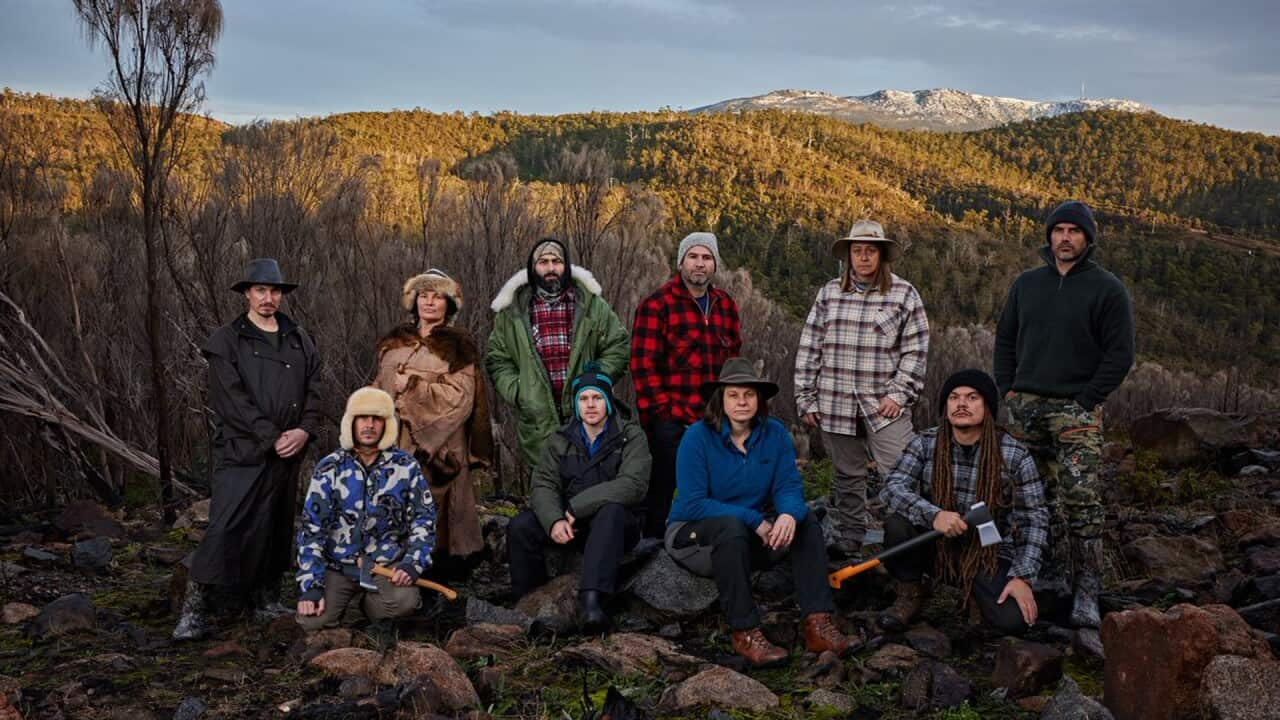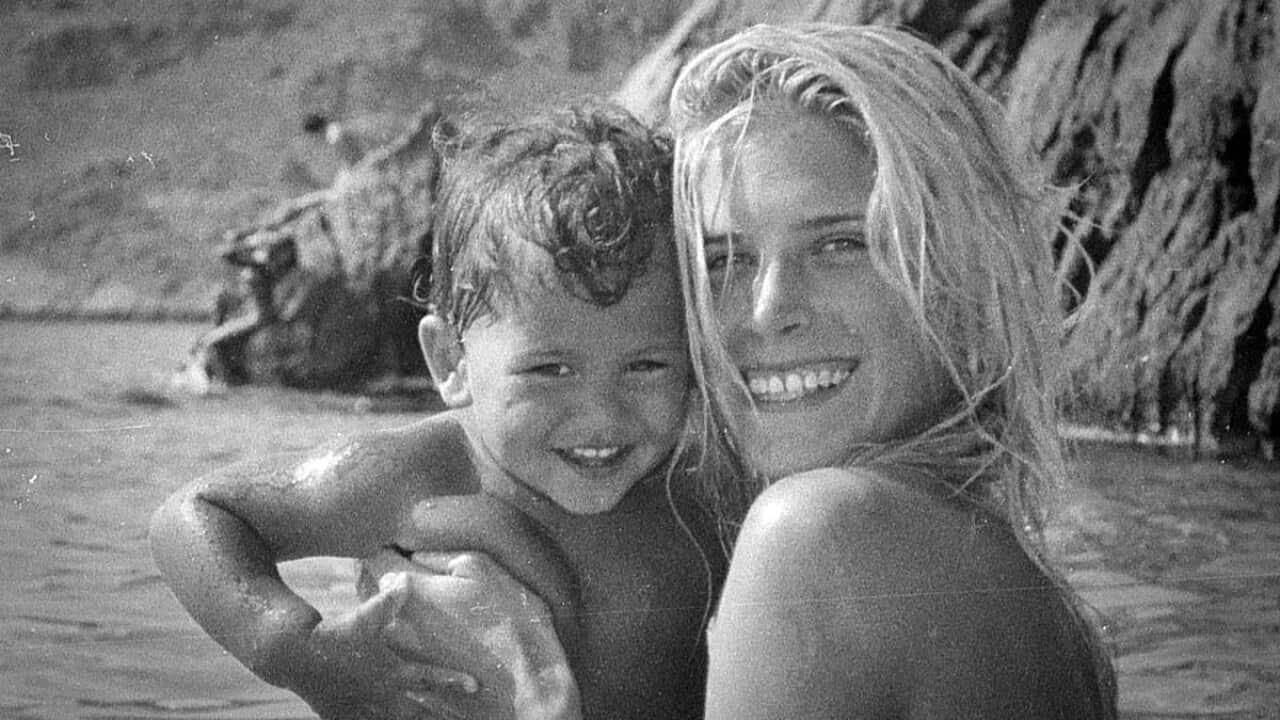Rachel Nickell was many things: a mother, a wife, and a former lifeguard who, at just twenty-three, was enjoying a happy life with her young family in south west London. She was also the victim of a random and brutal attack, carried out in broad daylight, on a sunny summer morning while walking with her two-year-old son Alexander on Wimbledon Common. It was an inexplicable act of evil that ended her life.
Now, thirty years later, Death On The Common: My Mother’s Murder sees Alexander return to the horror of that day, retracing his mother’s steps and meeting those involved in the subsequent investigation. As the documentary recounts, Rachel’s death in 1992 sent shockwaves across Britain, not only because of the tragic circumstances surrounding it, but also due to the realisation that her toddler son had seen it all unfold. What would his future look like in the aftermath of such a trauma? How could such a little boy ever recover from something like this? Though the experts involved in the case were undeniably concerned with tracking down the perpetrator of this senseless crime, media interest focused largely on the family and their grief. Years later, it’s clear that the press, along with a number of police, politicians and others in positions of authority command little respect in the eyes of Alexander and his father, Andre.
Though the experts involved in the case were undeniably concerned with tracking down the perpetrator of this senseless crime, media interest focused largely on the family and their grief. Years later, it’s clear that the press, along with a number of police, politicians and others in positions of authority command little respect in the eyes of Alexander and his father, Andre.

Alex Hanscombe revisits the tragic past in ‘Death On The Common: My Mother’s Murder’. Source: SBS
These are two people whose trust has clearly been destroyed by unimaginable loss and a system that, in many ways, allowed it to occur. There’s no denying that they want an explanation for why things were handled the way they were, but they also, on some level, want to make peace with it.
Shortly after Rachel’s death, Andre fled with his young son to Barcelona in hopes of leaving behind the intense scrutiny surrounding the case to give Alexander some semblance of a normal life. Just as they left together all those years ago, they return to England together, and it’s a journey that is significant for both of them. Alexander is particularly intent on understanding exactly what happened in the aftermath of his mother’s murder; memory is fallible at the best of times, but particularly as a toddler, and he wants to give those involved a chance to tell their side of the story. These conversations are both heartbreaking and healing, and there’s an enormous amount of courage required to revisit unimaginably painful moments in seeking them out. Each of the individuals Alexander visits throughout the documentary remembers him. How could you not? Despite decades passing, there is obvious relief and surprise on many of their faces when they first see him again. Whether it’s because they expected to be met with a broken man, or something far worse, they all take solace in being proven wrong.
Each of the individuals Alexander visits throughout the documentary remembers him. How could you not? Despite decades passing, there is obvious relief and surprise on many of their faces when they first see him again. Whether it’s because they expected to be met with a broken man, or something far worse, they all take solace in being proven wrong.

Andre and Rachel with Baby Alexander. Source: SBS
Andre and Alexander also return to the doorstep of what was once their family home, as well as the location where Rachel was murdered, in an attempt to reclaim the happy moments shared there that were tainted in the wake of the attack. As Andre tells his son when they arrive at the small, suburban house, they are memories that feel so long ago yet at times seem like yesterday. It’s important to note that the documentary spends little to no time revisiting the eventual arrest and conviction of the man responsible for Rachel’s death, and it’s a deliberate and powerful decision. For starters, it was a result that took a staggering sixteen years to achieve, and while it was arguably the best version of justice the family could hope for, it ultimately didn’t change anything; it couldn’t bring Rachel back.
It’s important to note that the documentary spends little to no time revisiting the eventual arrest and conviction of the man responsible for Rachel’s death, and it’s a deliberate and powerful decision. For starters, it was a result that took a staggering sixteen years to achieve, and while it was arguably the best version of justice the family could hope for, it ultimately didn’t change anything; it couldn’t bring Rachel back.

Alex (foreground) with his father Andre. Source: SBS
As a result, there’s space provided for a unique opportunity to explore the effects of childhood trauma through the eyes of one who has experienced it firsthand. There’s also room to reflect on how these random, senseless killings of women not only destroy their lives, but change forever the lives of those who love them.
In recent years, names like Jill Meagher, Sarah Everard and more recently Aisling Murphy, have made news headlines around the world, but there are countless other names we will never hear that belong to women who have met the same fate as Rachel Nickell. The parallels between her story and many others may leave you wondering what it will take for things to change, and how many others are out there in Alexander’s position, trying to understand why their mother, sister, wife or daughter will never come home.
Death On The Common is a deeply moving picture of a son’s search for answers, decades after the tragedy that changed his life.
Death On The Common: My Mother’s Murder premieres at 7:35pm, Saturday 19 February on SBS.
More from The Guide

The enduring appeal of ‘Alone’







